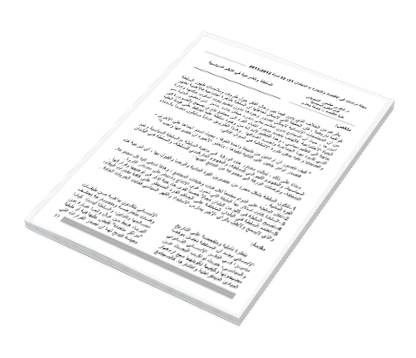Power and Legitimacy in the Political Systems.
DOI:
https://doi.org/10.37376/deb.v31i.1150Abstract
We look at the human history as a distinct place in the human legal and political thought, as the search for its content and now to form it is accompanied by the flourishing and spread of democratic principles.
The human society is made up of stratified and conflicting classes and categories whose interests differ and differ, despite the disagreement among intellectuals a bout the circumstances and circumstances of the emergence of power.
The fact that power cannot be ignored is a social phenomenon. It is important to note that human societies cannot be imagined without an organization that determines its governance and management.
The unorganized society remains a rigid structure incapable of achieving the goal of social life.
This organization must have a supreme authority that preserves its supreme values. This route is usually paved with blood and victims.
Therefore, the problem can be crystallized in the following question: how do we imagine that two wills of one nature dissolve, so that one is superior to the other, and orders are issued by the second, and the latter considers that it is obligetory?
The results of the research are as follows:
1. Power consists only of two elements:
Physical strength- consent and acceptance, the legitimacy of this material force.
2. Power is always coveted by all groups in society.
3. The power was taken over by the class that possessed the forces of production and controlled the sources of wealth in society.
4. In many countries, power becomes fertile ground for the influence of foreign powers that influence their direction and decisions.
Downloads

Downloads
Published
How to Cite
Issue
Section
License
Copyright (c) 2022 Dirasat in Economics and Business

This work is licensed under a Creative Commons Attribution-NonCommercial-NoDerivatives 4.0 International License.







